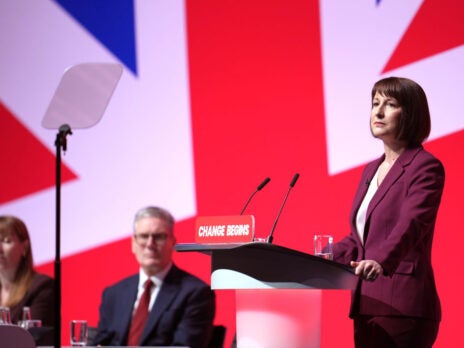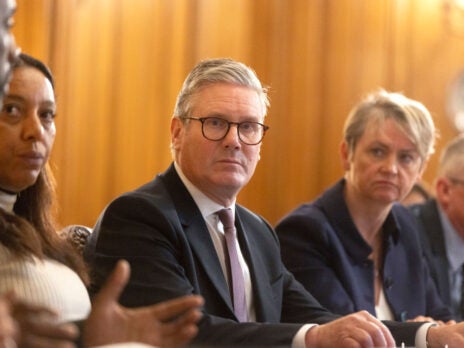
It is increasingly obvious that things are pretty dire for the Conservatives. Labour’s poll leads are as high as 30 percentage points and forecasts put the party on course for as many as 400 seats at the next general election (close to its 1997 landslide victory). Plenty of people, however, might dismiss these numbers as typical midterm blues for the government. Labour, after all, led under Ed Miliband – and come election day he still lost.
This time I’d tentatively suggest that things are different. Headline voting intentions are a useful indicator, but they’re far from enough. There are other metrics that I use to gauge whether Labour is truly ready for government and, indeed, whether the government is truly in trouble.
At present, according to Britain Elects, Labour is ahead of the Conservatives by 20 points. With the exception of the opening months of the Covid-19 crisis, no party has attained a UK-wide lead as large as Labour’s for more than two decades. This lead is also not just down to former Conservatives moving to the “undecided” bracket: a healthy number are defecting to Labour.
But since it’s not healthy to examine voting intentions in isolation, what I also study closely is the personal standing of the leaders. It undoubtedly helps for the Prime Minister to be well-rated by voters, or at least better rated than their primary opponent. At the 2019 general election Boris Johnson was already unpopular with most voters but what ultimately counted was that he was less unpopular than Jeremy Corbyn. At present, Liz Truss is less liked than Keir Starmer by a margin of nearly ten points.
This is the worst a Conservative prime minister has performed against a Labour leader of the opposition this century. While Labour often led the Tories during the coalition from 2010 to 2015 – a fact often cited to dismiss current polling – not once did Miliband lead David Cameron on personal likeability. That’s what makes the current numbers so different.
[See also: Mapped: The new constituency boundaries for England and Wales]
The final metric to consider is the economy. The importance of other issues rises and falls over time – immigration, for instance, is far less prominent now than at the time of the Brexit referendum – but the economy is forever king. If a party does not lead on this issue it will probably struggle ever to lead the country. During the New Labour years, the party’s lead on this issue was crucial to its three general election victories.
Following the 2008 financial crisis, however, Labour’s advantage evaporated and the Conservatives proceeded to comfortably lead on the economy for 14 years.
During Miliband’s leadership the Conservatives’ advantage endured. Though their lead weakened in the aftermath of the 2012 “omnishambles” Budget it was never fully lost. During Jeremy Corbyn’s leadership the Tories were ahead on the issue by an average of 17 points. Even during the period when Corbyn led Theresa May on likeability (it was a very low bar), his party never led the Tories on the economy. Now it’s all changed. Labour leads the Conservatives on the economy by ten points – its highest advantage since 2005.
It is these two extra metrics – leadership and economic approval ratings – that are most revealing for me. If you lead on these, and on headline voting intention, you can be confident of winning or retaining office at an election held tomorrow. If, however, like Miliband’s Labour, you lead in the polls but not on the economy or leadership, then more work needs to be done.
We are, however, currently in the eye of the political hurricane. The Conservatives are in crisis, the economy is in freefall and the voters see that but, contrary to the misanthropes, it’s not going to be like this forever. The test will be whether Labour can sustain its leads once the economy eventually stabilises and the cost-of-living crisis fades from public view. If Starmer’s party maintains its advantage in this context you can be confident of the result of the next election. But until then, remember that that election isn't due for two years.
[See also: Tactical voting could leave Tories with just eight northern seats]


